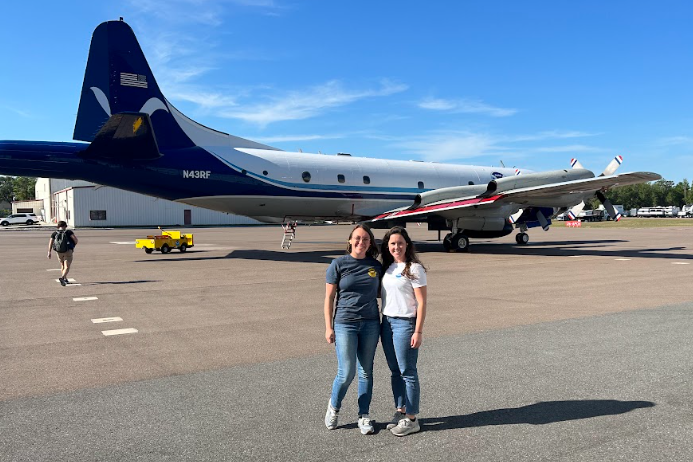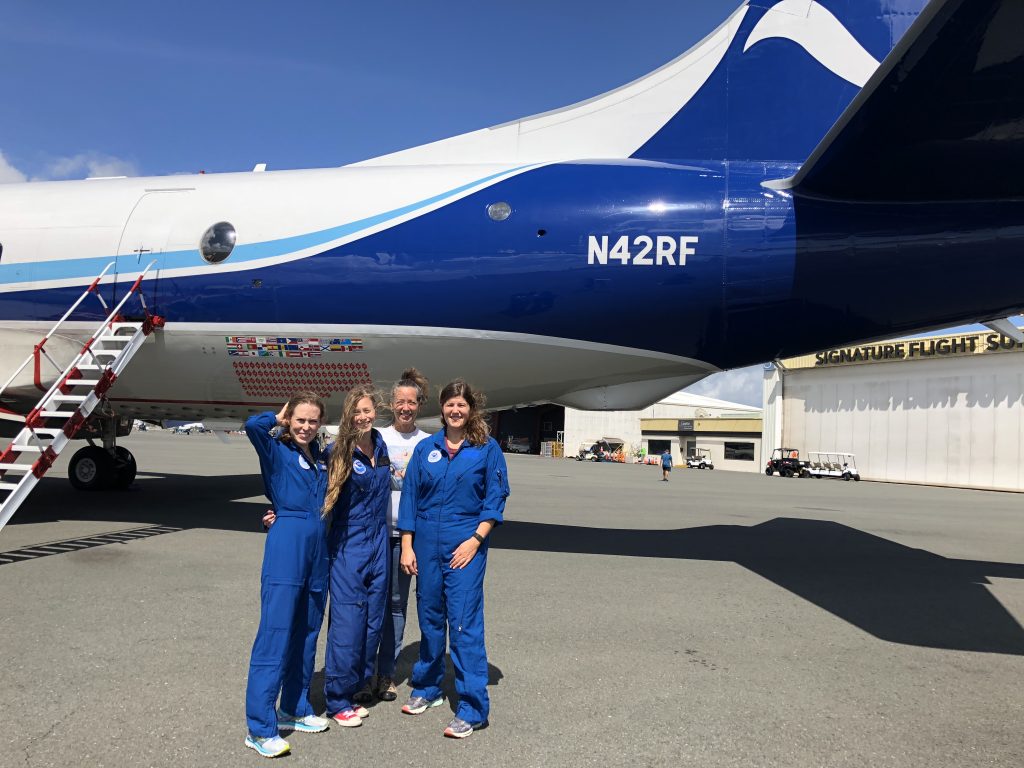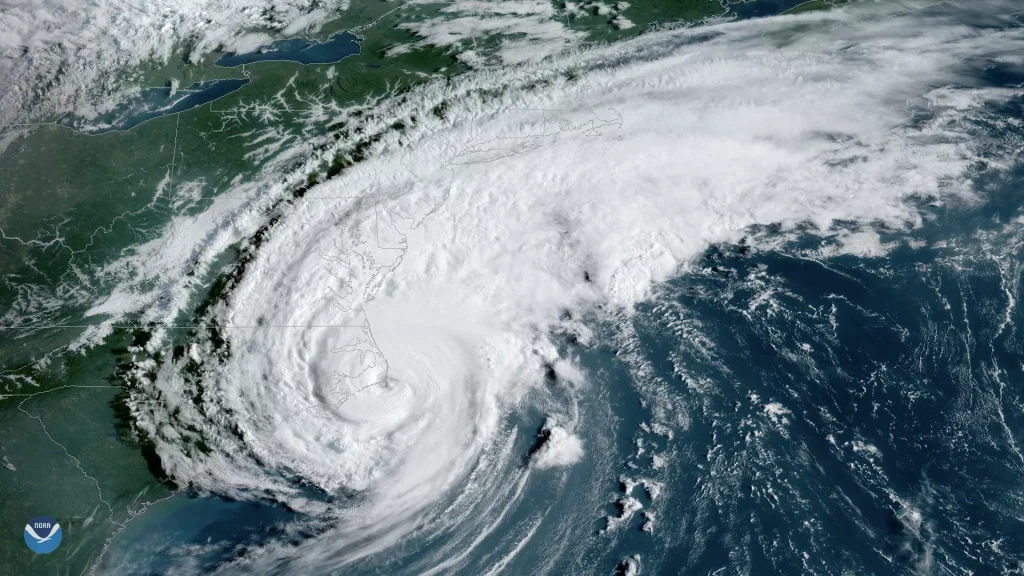How seven women across NOAA are leading advances in hurricane technology, observing, and forecasting
Hurricanes, also known as tropical cyclones, are among the most destructive natural disasters. These storms pose major risks to coastal communities and cost billions of dollars each year in damages. Impacts are expected to increase with warming ocean temperatures, rising sea levels, increasing storm intensity, and growing coastal populations. NOAA and our partners have a long history of leading hurricane research in the United States. Advancing the research helps scientists better track the location, movement, and strength of approaching storms so that we can better determine when and where a hurricane will make landfall and how severe the impacts will be. Accurate forecasts are imperative to help our communities prepare for oncoming storms, ultimately protecting life and property and mitigating the societal and economic impacts in the U.S. and associated territories.
Hurricane science is complex and dynamic, and it takes people working in a variety of roles to successfully observe and forecast storms. Oftentimes, it begins with program coordinators and managers who help to guide hurricane research by providing funding and strategic direction to advance hurricane observing technologies. Researchers use these technologies to better understand how oceanic and atmospheric conditions drive hurricane development, which is used to improve models of hurricane track and intensity. Pilots fly NOAA’s Hurricane Hunter aircrafts into hurricanes to help scientists deploy observing technologies and collect critical data that also feed into these models. This information is then used by the operational community to produce forecasts that warn the public of oncoming storms.
Although women remain a minority across STEM (science, technology, engineering, and math) fields, they make substantial contributions to hurricane sciences. With the start of the 2023 hurricane season approaching, we are highlighting some of the outstanding women working in hurricane sciences across NOAA’s programs, labs, and partners.
Click the icons below to learn more about seven women from NOAA and its partner institutes and the important contributions they are making to hurricane research and operations.
Women remain a minority in hurricane sciences, but progress is being made
Like many STEM fields, oceanography and meteorology have traditionally been male-dominated. Although the number of women attending graduate school in STEM fields has increased substantially over the years, the proportion of women, particularly those from underrepresented or minority groups, making it to full-time research or leadership positions remains low.
Women in hurricane science face many challenges, ranging from subtle to overt. For example, it can be difficult to balance field work and research with basic maternal care. “Women that are pregnant or nursing may have restricted access to aircrafts and research vessels,” noted Heather Holbach, “This can make it difficult for them to do research and advance in their careers.” Martha Schönau added that, “With pressure to compete for research funding and to rapidly publish, it can be tough to accommodate time with family, especially during the early years of parenthood.” However, she remarked that STEM fields are becoming increasingly accepting of non-traditional career paths and remote work that makes it easier for women to find work-life balance.

Both Stienbarger and Bucci expressed that being a woman in hurricane science can be lonely, but this is changing as women take on more roles in STEM fields. Bucci said, “At the beginning of my career, when I first began to fly in 2012, it was not uncommon for me to be the only woman on-board a hurricane mission. However, by 2018, I was part of the first all-female science crew!” As more women join the field, loneliness occurs less frequently. “More and more women are taking on senior positions, leadership roles, and leading groundbreaking research in the hurricane sciences,” said Richardson, adding that “although progress is being made, we cannot get complacent, there’s still work to do!”

For women just starting out in hurricane science or STEM fields, our interviewees had several pieces of advice: Schönau recommended building a solid foundation in hard sciences, but also exploring your interests and curiosities. “Most successes usually come after multiple failures,” she observed, “so don’t get discouraged or stressed over finding the right answer.” Gaston encouraged women to “take every opportunity that comes your way and don’t be afraid to fail. If it scares you, that’s usually something you should try to do.” Bucci added, “Don’t be afraid to ask questions or to ask for help.” By putting yourself out there and growing your network, Richardson said “you can build long-lasting and impactful relationships that will benefit you throughout your career.”
Finally, Holbach shared these words of encouragement: “Don’t let anyone tell you that you can’t do something because you are a woman. If you are passionate and put in the hard work to accomplish your goals, nothing can stop you from achieving them.”
Special thanks to Renee Richardson, LCDR Megan Gaston, Heather Holbach, Martha Schönau, Cheyenne Stienbarger, Maria Aristizabal Vargas, and Lisa Bucci for participating in this Women in Hurricane Sciences feature.
Author Jesse Gwinn is a 2023 Knauss Fellow focusing on communications and capacity building projects for the GOMO Program.
